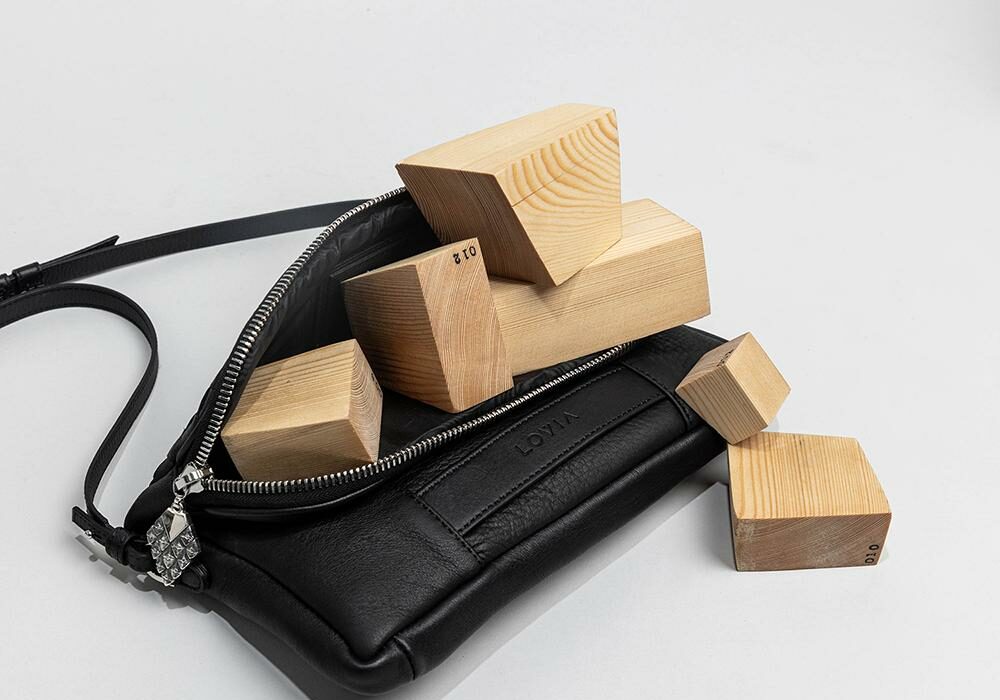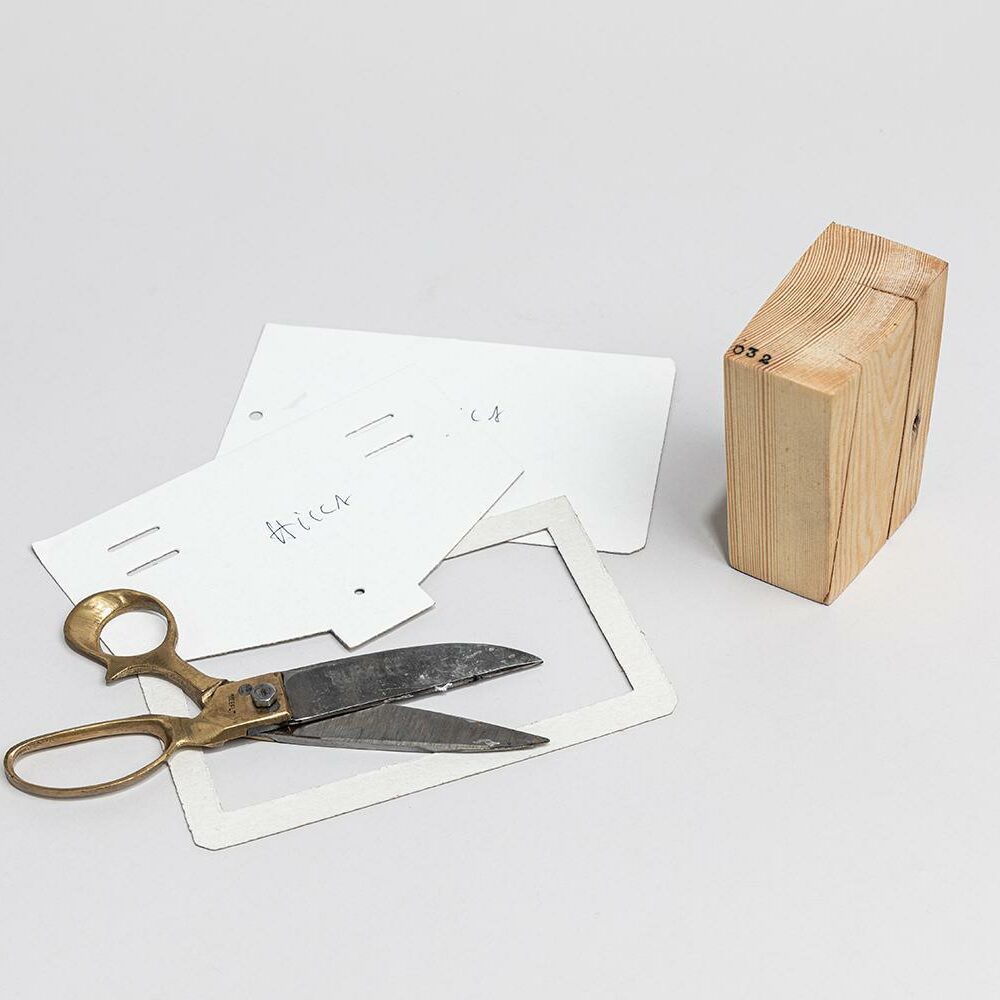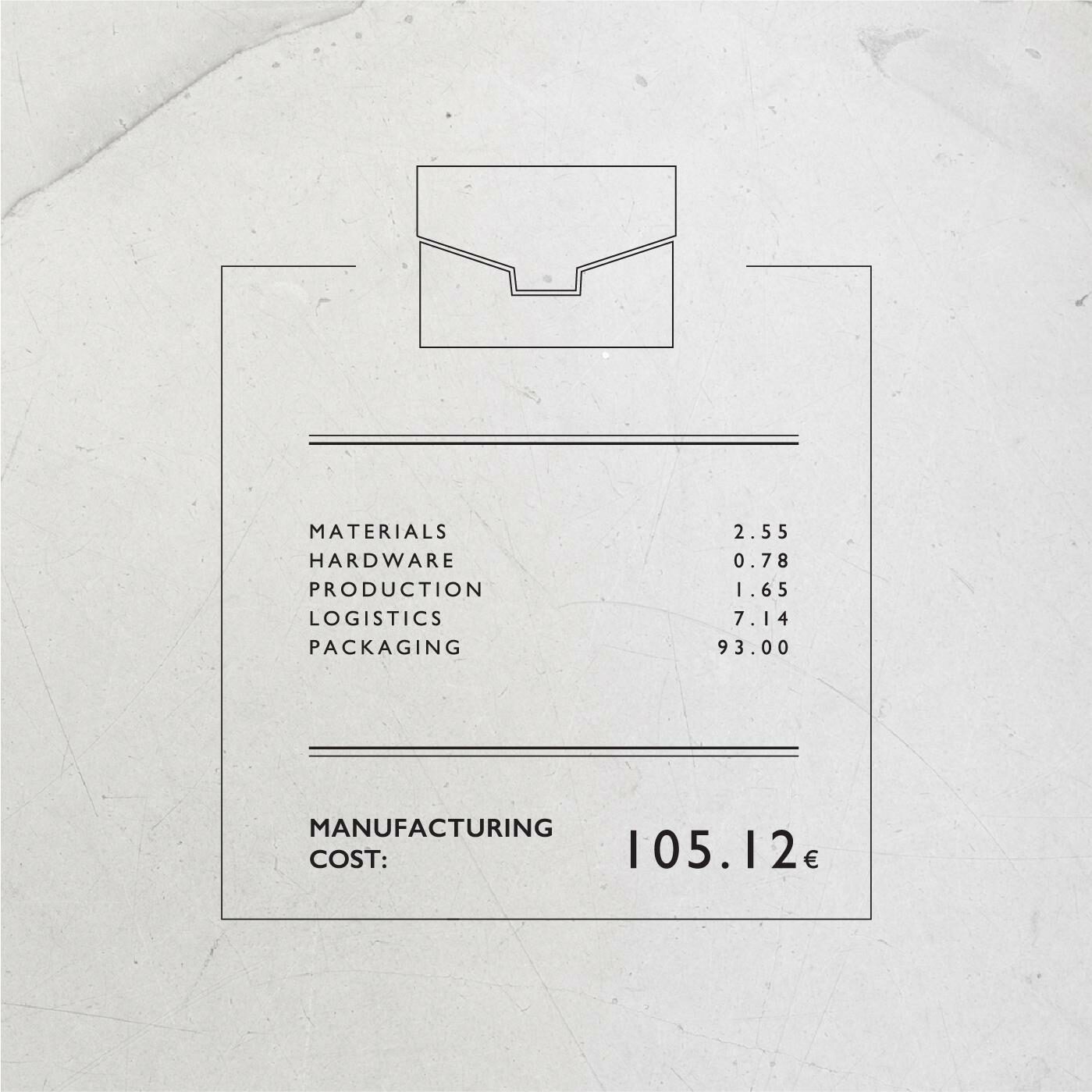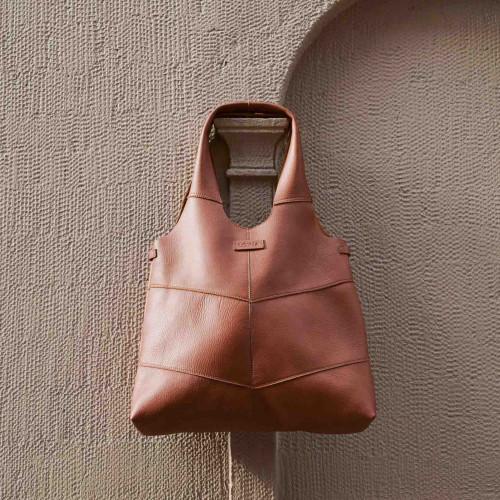OUR BAGS CAUSE EMISSIONS
BRUTAL HONESTY
Presenting the new normal in transparency, revealing the Carbon Footprint of your item.
In our modern world it is practically impossible not to take part in consuming. Consumption will not come to an end, so instead it must transform into a more sustainable form in order to continue our life on this precious planet of ours.
Making better choices requires information, and that’s why we wanted to calculate the exact emissions caused by your bag. It may not all be pretty, but it must be told.
We call this Brutal Honesty.
Carbon footprint revealed
In order to be honest to others, you must first achieve this within yourself. Only this way can you discover both successes and faults. Together with Ronja Salmi we created a short video to explain what the carbon footprint actually reveals.
Towards lower emissions with modern circularity in mind
The impact of climate change and the threat it poses to biodiversity are the most significant issues facing humanity. So, it is crucial to be aware of the impact of our actions. We want to increase awareness on the meaning and understanding behind a carbon footprint by being as transparent as possible and revealing the numbers behind our items.These numbers serve as an important tool when developing our collection towards the better. Comprehensive life cycle impact thinking is the most important starting point to achieving a circular and sustainable value chain. Our aim is to create a modern circularity, benchmarking nature in its ways. There is no trash, no excess, only resources that take part in the cycle of all life.
This combined with taking care of the wellbeing of all the people involved, and crafting items that truly stand the test of time both in design and quality, guide all of Lovia’s actions going forward. We want to advocate for real and brutal honesty; to not try to be correct but rather act correctly.
What makes up the carbon footprint of our products?
Materials
Production
Logistics
Packaging
adventures
Recycling
The first step in developing for the better is to know where you are starting from; by knowing and understanding our and your own numbers can we then systematically make efforts to stride for the better and move towards a carbon neutral future. There is no universal standard available for emission calculations of factors to utilise. The Lovia model has been created together with a third party consultancy, and the assessment report and calculation principles can be examined by downloading the report at the bottom of the page.
In measuring the carbon footprint of an item, we take into account the different phases and parts of the value chain that create emissions: material use and selection, production, logistics, packaging, product use and the end of life for your beloved treasure.Below you can see the total emissions of our HILLA bag divided into different parts according to our production process.
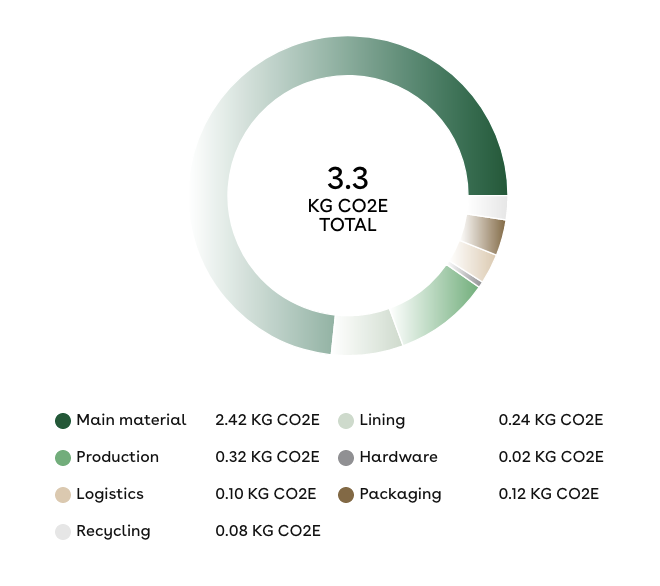
WHY IS THIS IMPORTANT TO US?
Carbon footprint is an important tool, guiding our internal actions by serving as an indicator. For combating climate change, it is crucial for us to truly understand, evaluate and develop our own impact.
HOW CAN WE IMPACT THE CO2?
The CO2 footprint sets a frame for our actions, impacting decision making. By examining this key figure, we can justify the existence of a product, look into innovations with our partners, measure development and increase awareness and discussion.
WHY SHOULD YOU CARE?
The CO2 numbers provide inspiration for you to examine your own personal impact and create a deeper understanding. They also shed light on the comprehensive fashion industry ecosystem and its impact on our planet.
Starting point:
Design table
It all starts from the very first sketch when it comes to design, and this is true also in regards to how the carbon footprint is formed. We aim to always create truly purposeful, timeless yet timely designs to serve ever-changing needs reliably. For a product to fit into the model of circular economy, it needs to be built on this from the very start. This involves not only the design aesthetics, but choosing the correct materials and structures per design to ensure durability and repairability. Our design takes these factors into account from the get-go, ensuring our products can stand the test of time.
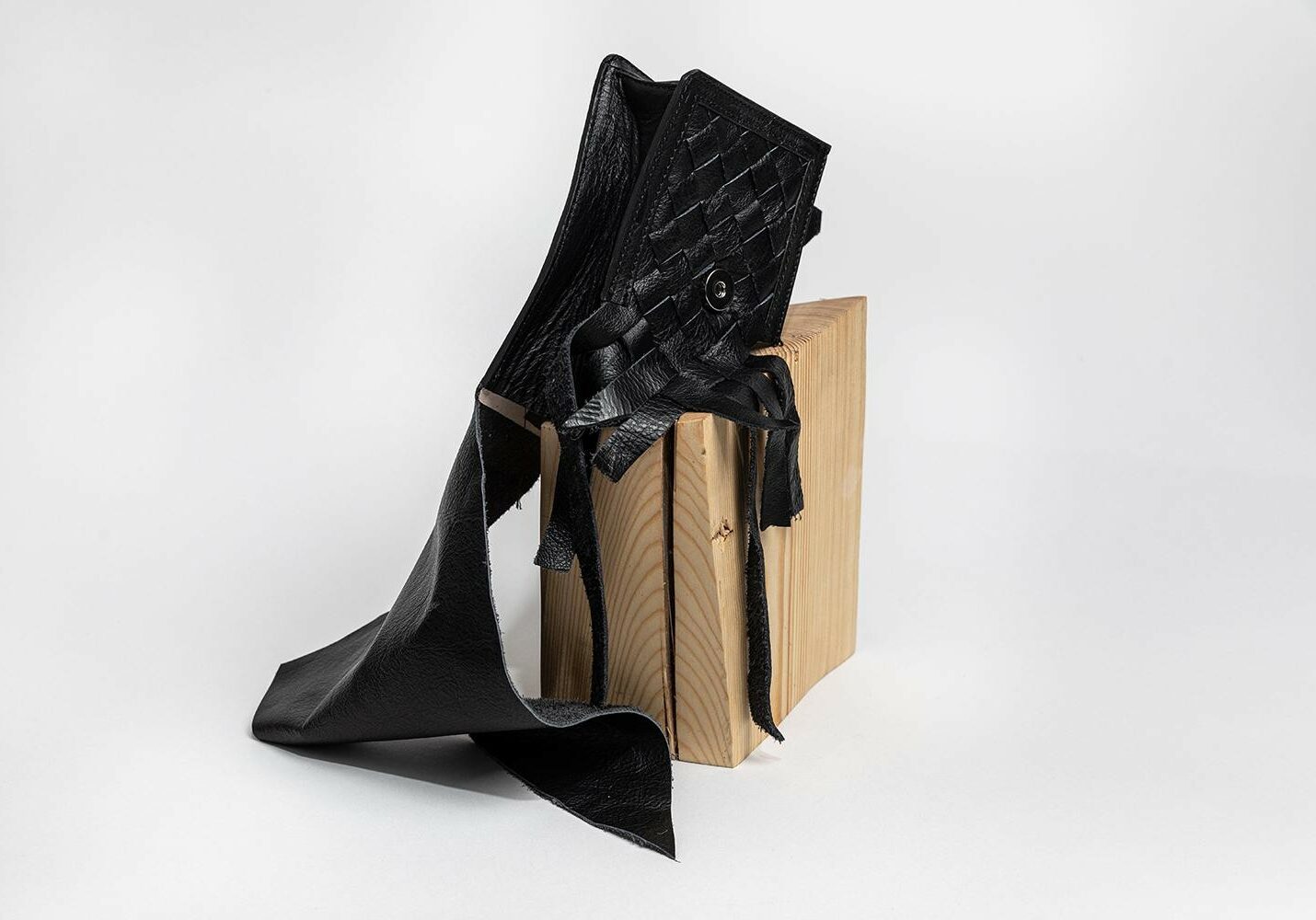
Materials
The choice to utilise otherwise wasted resources as materials already diminishes the carbon footprint of our items. Our collection also prevents these valuable resources from going to waste and ending up in landfills. If we were to utilise recycled raw material streams instead of collecting these leftovers, creating usable materials from them would require more energy and resources, resulting in more carbon emissions.
Production
Thanks to our direct-to-producer value chain we are able to ensure that production is of high quality, maintains ecological practises and is truly ethical. Being transparent about our production and ensuring the wellbeing of the people involved has been a key value for us from the very start. As we know our partners personally and are in direct contact with them, we are also able to look into developing our cooperation together, and impacting the carbon footprint.
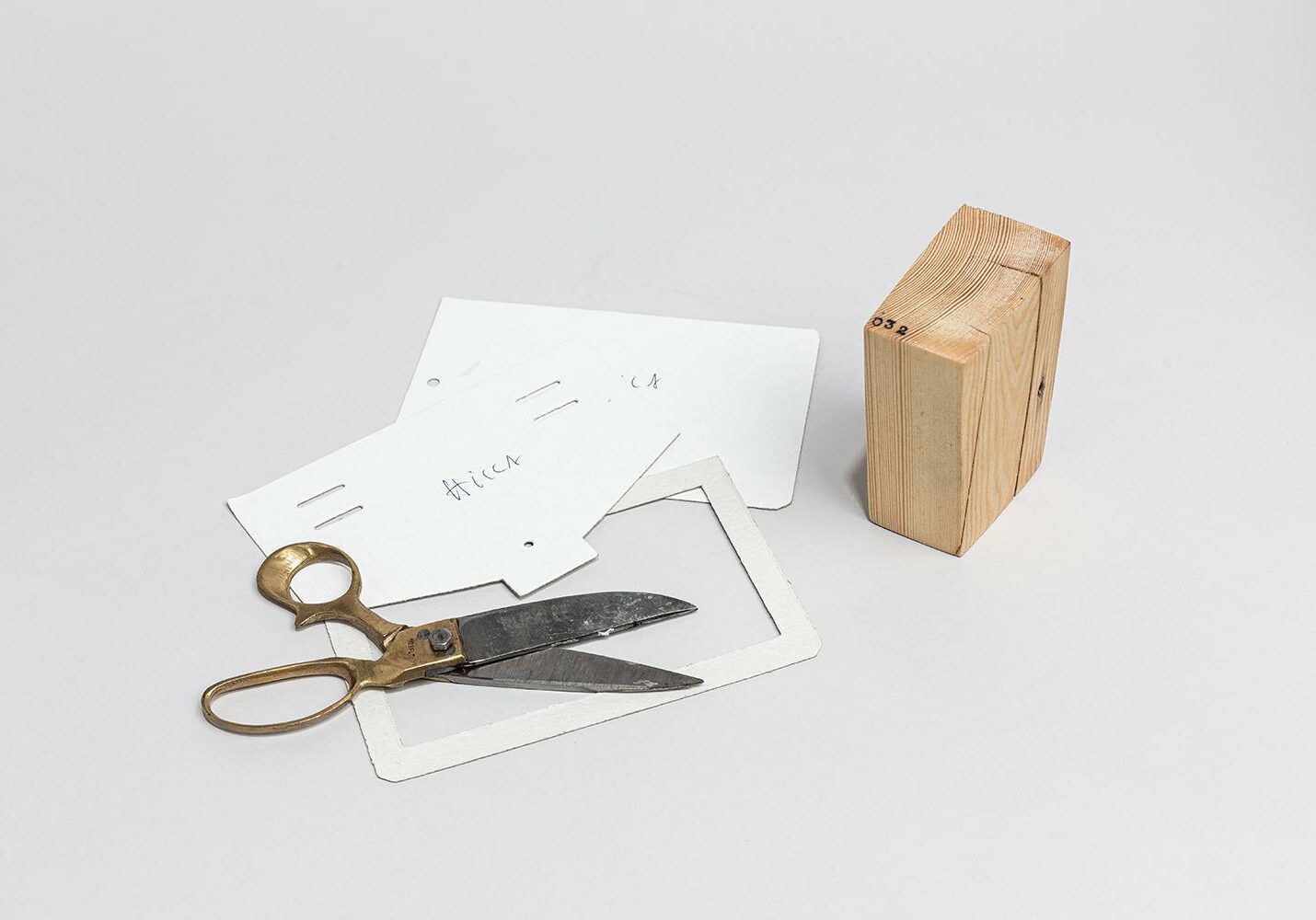
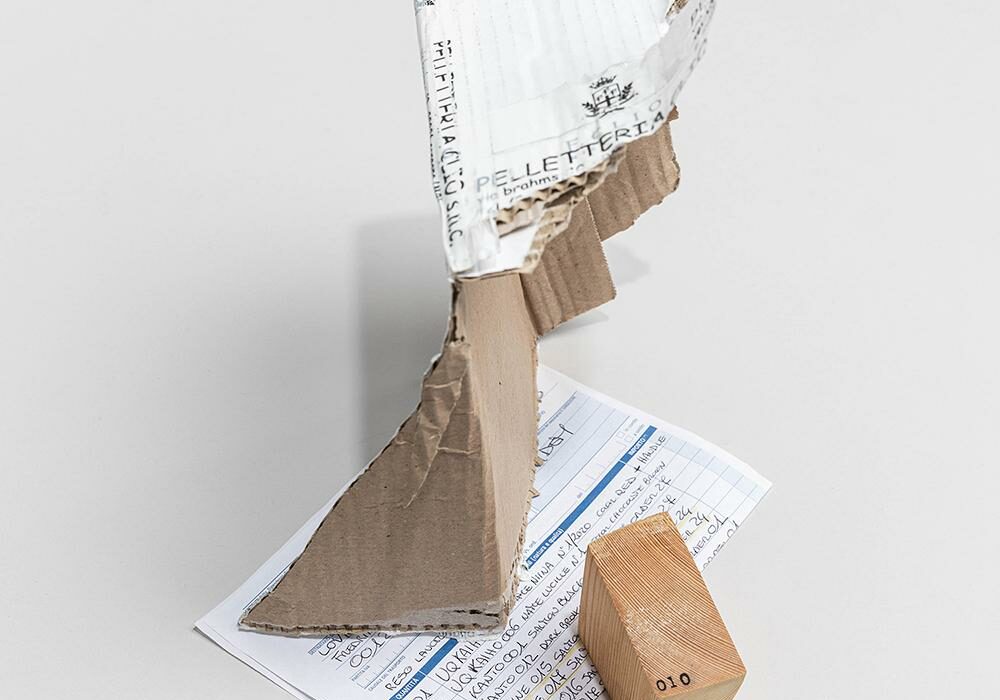
Logistics
In our globalised value chains it is essential to also look into the effect of logistics on the carbon footprint of a product. Our materials and ready bags travel between our headquarters in Helsinki and production in Italy via land freight in order to minimise emissions. This emission number only entails production-caused logistics, so delivery of your orders is not included. Our orders to all of you travel with carbon-compensated transport.
Packaging
The packaging involved with our products also creates its own emissions. Our dustbags are made from cotton waste, and they protect your items to last even longer. All other materials, such as cardboard boxes, product info & care cards and tissue paper involved with packaging are made from mostly recycled materials. We have also chosen to only include the necessary packaging and information to minimise wasted resources and emissions.
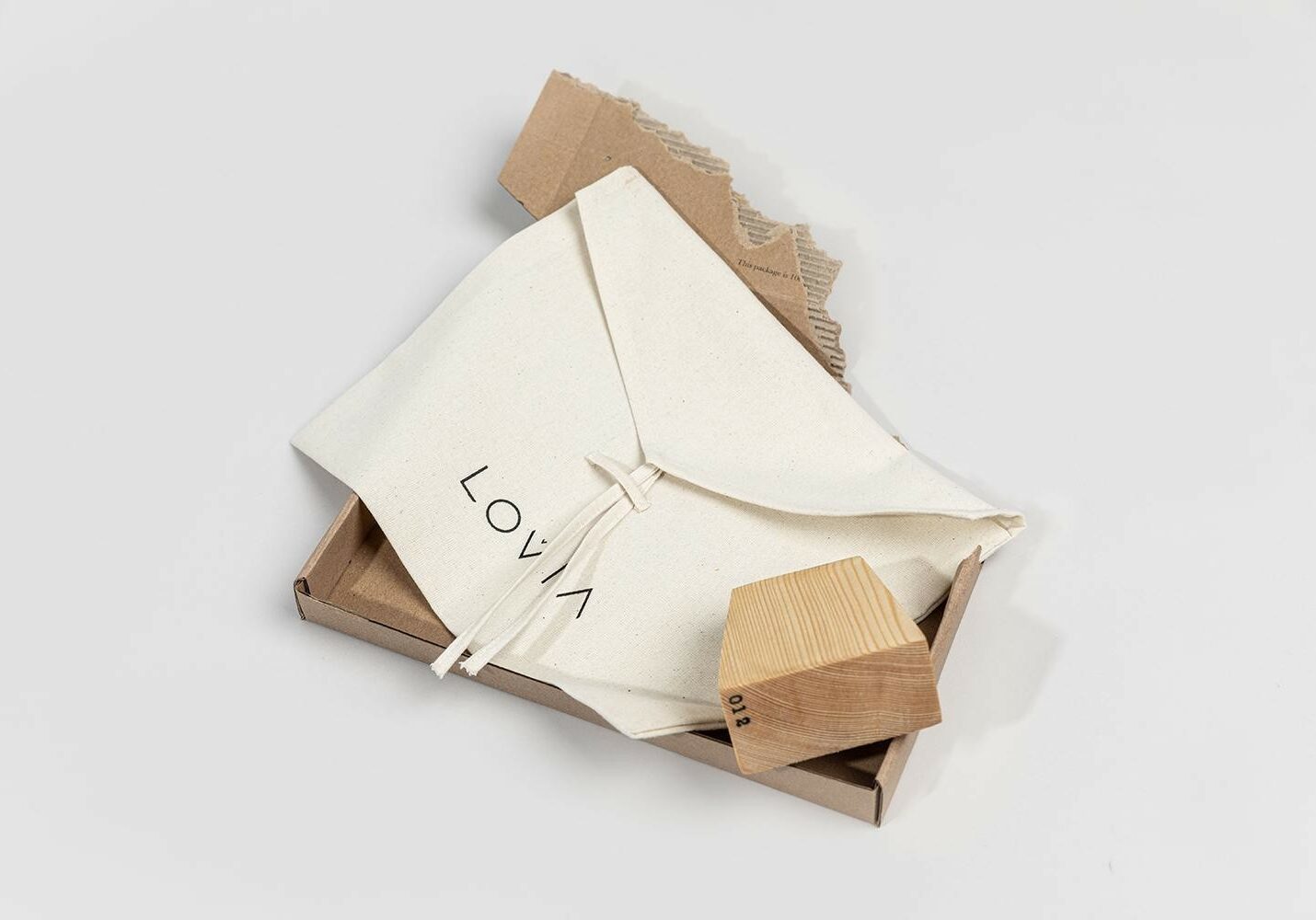

Recycling
When your years together come to their end, you should first aim to recycle your bag. The quality and good care make for high resale value, and this way your treasure can continue on its journey as a loyal companion for someone else. If your treasure has faced its end, currently the correct option is to dispose of it in mixed waste. This solution is far from perfect, and our efforts are to continuously work on developing the recycling possibilities of the different components.
Your impact:
A little love goes a long way
For the time you are enjoying your product, emissions are practically at a zero. As bags do not require regular wash such as e.g. clothes do, there are no emissions caused by use.We encourage you to take good care of your products to ensure their long life on your side. By treating them to a little bit of pampering from time to time you can add years to your life together. For all of our materials, we have created specific care instructions together with experts. Making your item stick by your side for longer also means less need for consuming a new item.
Starting point:
Design table
It all starts from the very first sketch when it comes to design, and this is true also in regards to how the carbon footprint is formed. We aim to always create truly purposeful, timeless yet timely designs to serve ever-changing needs reliably. For a product to fit into the model of circular economy, it needs to be built on this from the very start. This involves not only the design aesthetics, but choosing the correct materials and structures per design to ensure durability and repairability. Our design takes these factors into account from the get-go, ensuring our products can stand the test of time.

Materials
The choice to utilise otherwise wasted resources as materials already diminishes the carbon footprint of our items. Our collection also prevents these valuable resources from going to waste and ending up in landfills. If we were to utilise recycled raw material streams instead of collecting these leftovers, creating usable materials from them would require more energy and resources, resulting in more carbon emissions.
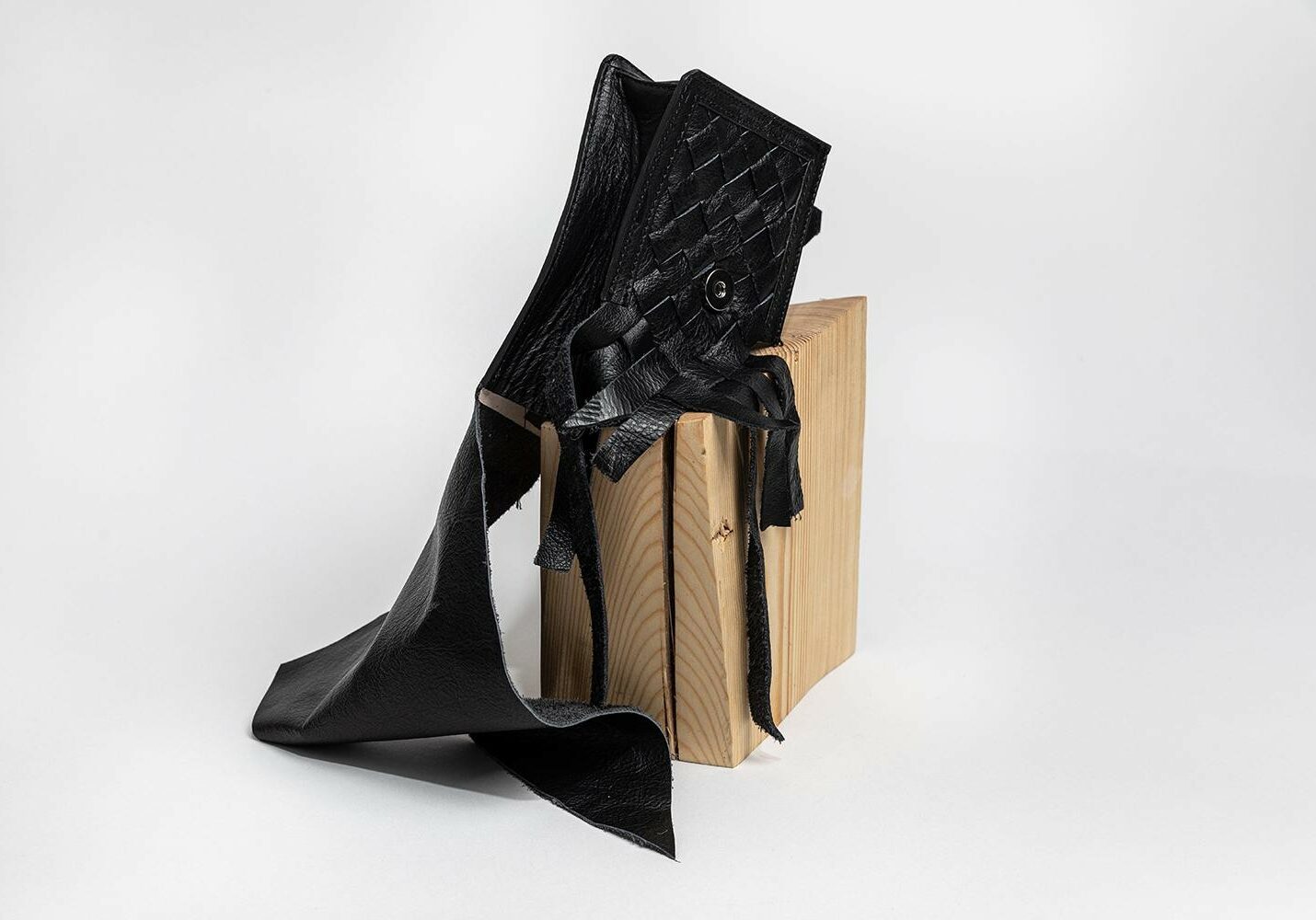
Production
Thanks to our direct-to-producer value chain we are able to ensure that production is of high quality, maintains ecological practises and is truly ethical. Being transparent about our production and ensuring the wellbeing of the people involved has been a key value for us from the very start. As we know our partners personally and are in direct contact with them, we are also able to look into developing our cooperation together, and impacting the carbon footprint.
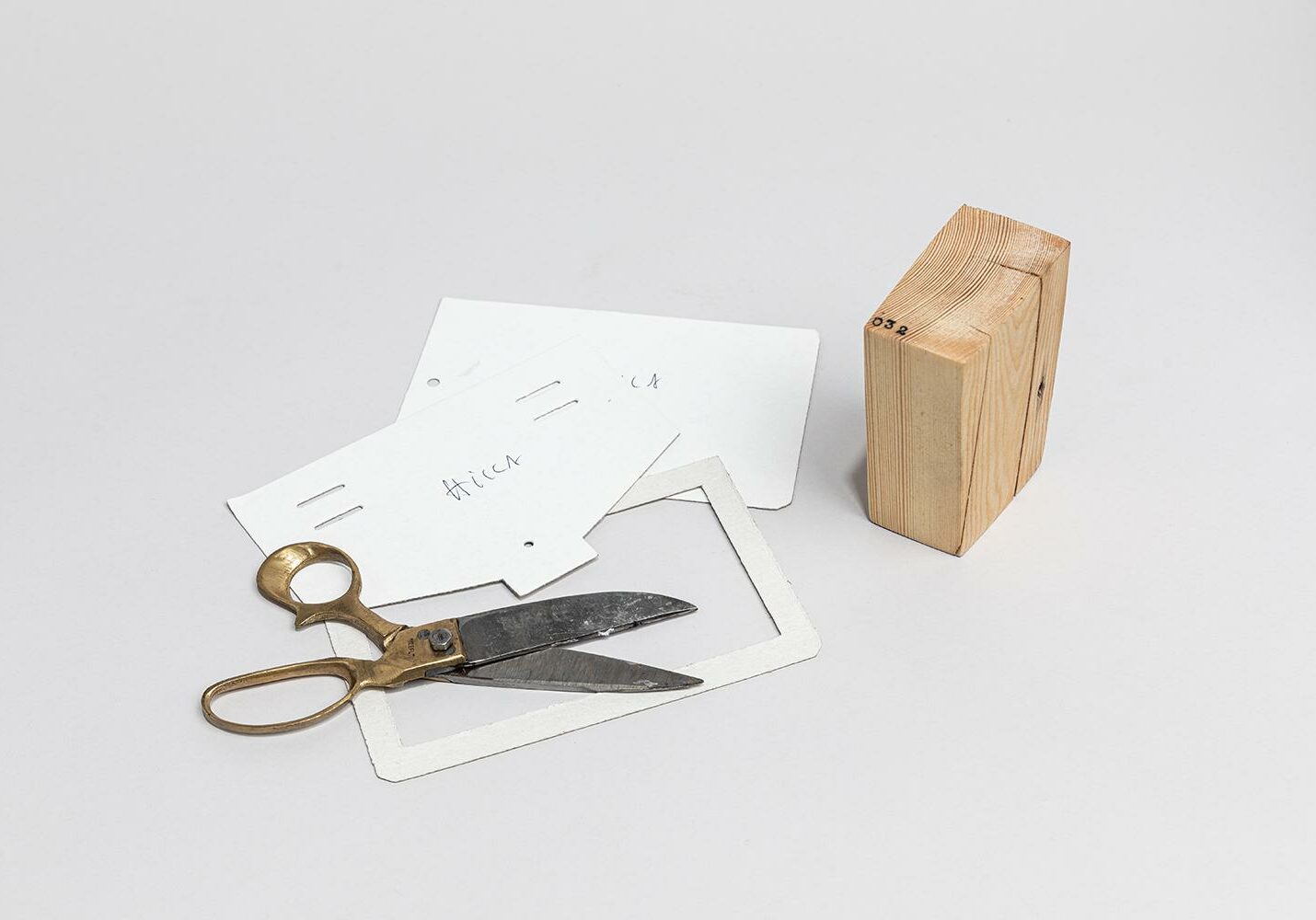
Logistics
In our globalised value chains it is essential to also look into the effect of logistics on the carbon footprint of a product. Our materials and ready bags travel between our headquarters in Helsinki and production in Italy via land freight in order to minimise emissions. This emission number only entails production-caused logistics, so delivery of your orders is not included. Our orders to all of you travel with carbon-compensated transport.
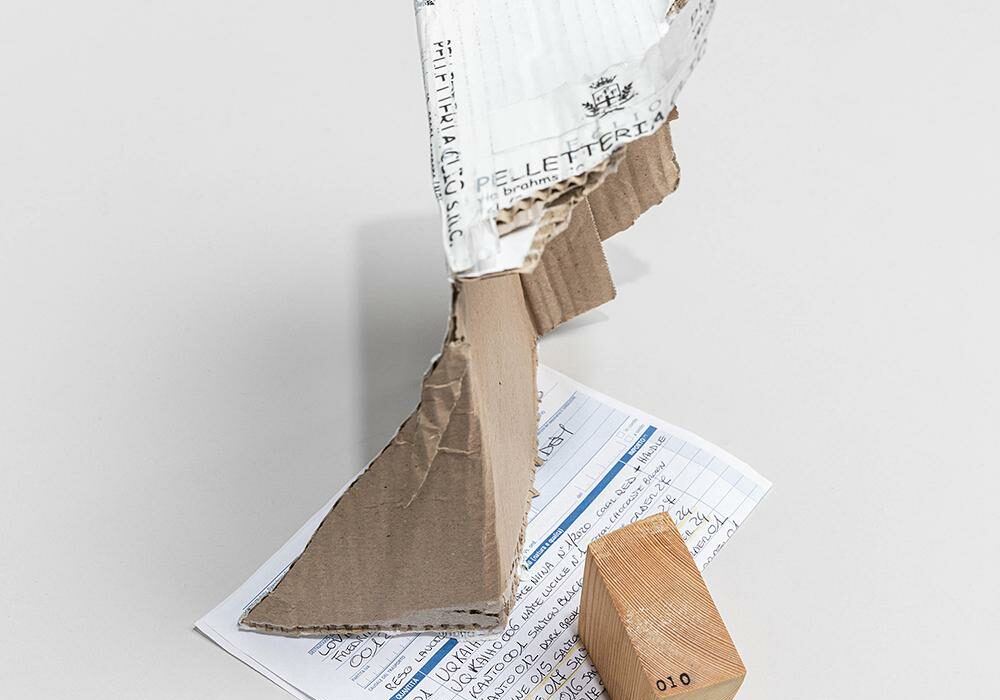
Packaging
The packaging involved with our products also creates its own emissions. Our dustbags are made from cotton waste, and they protect your items to last even longer. All other materials, such as cardboard boxes, product info & care cards and tissue paper involved with packaging are made from mostly recycled materials. We have also chosen to only include the necessary packaging and information to minimise wasted resources and emissions.
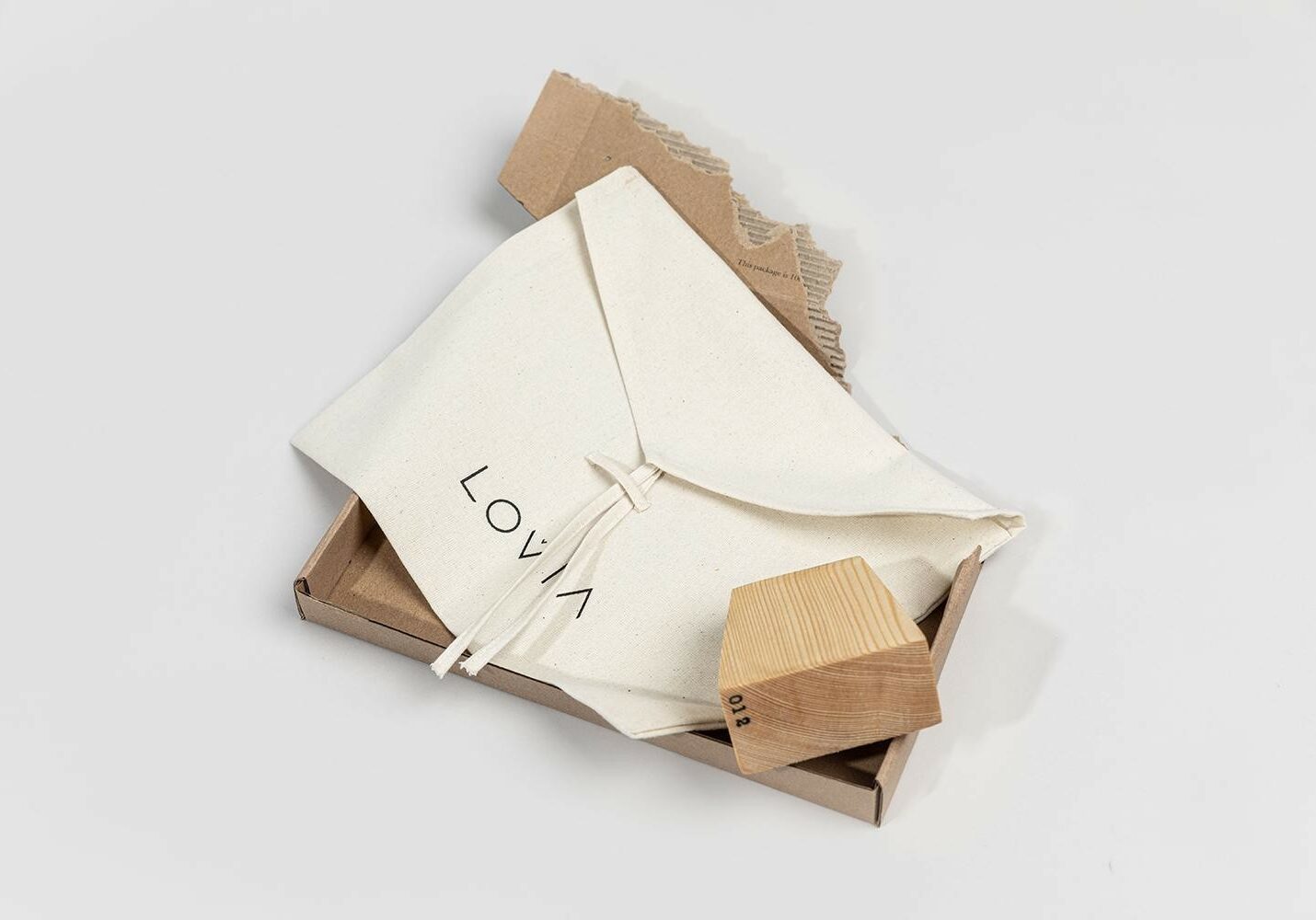
Recycling
When your years together come to their end, you should first aim to recycle your bag. The quality and good care make for high resale value, and this way your treasure can continue on its journey as a loyal companion for someone else. If your treasure has faced its end, currently the correct option is to dispose of it in mixed waste. This solution is far from perfect, and our efforts are to continuously work on developing the recycling possibilities of the different components.

Your impact:
A little love goes a long way
For the time you are enjoying your product, emissions are practically at a zero. As bags do not require regular wash such as e.g. clothes do, there are no emissions caused by use.We encourage you to take good care of your products to ensure their long life on your side. By treating them to a little bit of pampering from time to time you can add years to your life together. For all of our materials, we have created specific care instructions together with experts. Making your item stick by your side for longer also means less need for consuming a new item.
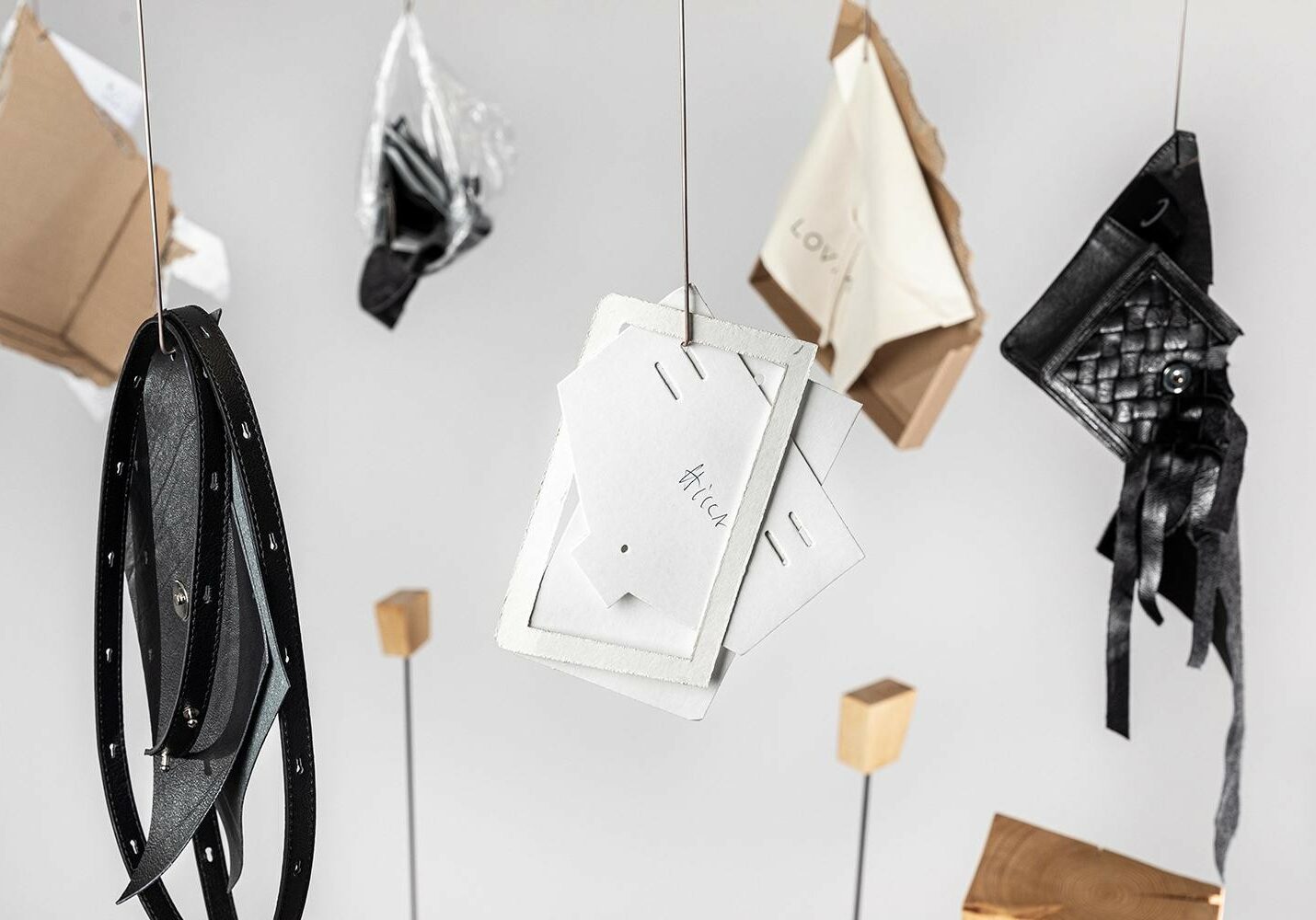
What's next for us?
We want to advocate for real and brutal honesty; to not try to be correct but rather act correctly. This means being truthful also about the parts that are not yet or will never be perfect. Our end goal is to create a perfectly circular model within our actions, as well as minimising energy and resource consumption. This aim has a direct impact on how we develop our collection and practises; what material streams and models we choose, how to increase durability and functionality of our items, how one bag can serve as many, to name a few.
Here are the next areas we want to focus developing:
- Lining material of bags: Currently we use a new polyester-blend material that is sourced through our partner Clio. We are in the process of switching the lining into a recycled option, and this will be in use for all products starting from November of 2021.
- Carbon footprint of our jewellery: Our calculations currently only cover our bags and other small goods. The next step is to do the same process for our jewellery.
- Partner collaboration & development: Some of our partners are currently using fossil-based energy resources. We want to aim to work with them to transition into utilising renewable energy.
- Revealing even more: Our goal is next to also be able to shed more light on the impact of the whole lifecycle of a product and the actions of our business. For this purpose, we are planning a collaboration with the Natural Resources Institute.
